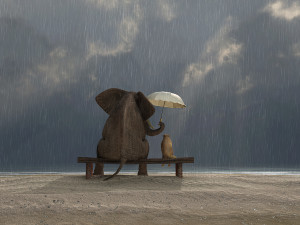Benjamin Zander delivers a myriad of messages in his incredibly poignant 20 minute TED presentation. I could introduce, recap and/or summarize his talk, but my words would only delay your listening to Zander – which in this case is a better use of your time.
When You Should Seek Outside Support

Research has shown that online grief support sites help grieving individuals. Still, there are times when it is wise to seek one-on-one counseling. If any of the following apply to you or your loved ones after the first month (post-loss), take action.
- You are having trouble functioning on a daily basis.
- You view life as hopeless.
- You can’t get out of bed in the morning.
- You reject all invitations.
- You don’t leave the house unless it’s an emergency.
- You overeat, over-drink, or abuse prescription drugs.
- You have panic attacks on a regular basis.
- You don’t sleep for days on end.
- Your children are acting out, getting poor grades, or not talking to you.
Anger After the Death of a Loved One
 As a child I learned it was shameful to “throw a fit and fall in it.” That was my grandmother’s expression. While it is refreshing to hear young parents request their toddlers use words instead of bad behavior to express their anger, we have generations of adults who still believe anger in general is bad.
As a child I learned it was shameful to “throw a fit and fall in it.” That was my grandmother’s expression. While it is refreshing to hear young parents request their toddlers use words instead of bad behavior to express their anger, we have generations of adults who still believe anger in general is bad.
Being a grief counselor, I often ask clients about their feelings of anger. It is common for them to say they’ve felt a lot of different emotions since the death, but they aren’t aware of feeling anger. I believe them. They aren’t aware.
As homework I ask them to keep a one-week daily diary of their head chatter and when they do, they are surprised to learn that they are downright mad—about a lot of things. The realization, however, usually brings remorse: “How could I possibly be angry at someone for dying? That sounds awful!”
Angry because of the death rather than angry at the person for dying.
Are You Preoccupied with Guilt?
 Do you have a list of things you “ought” to have said/not said or done/not done near the time of your loved one’s death? Everyone feels inadequate when a loved one is dying, but some of us just can’t seem to take ourselves off the hook.
Do you have a list of things you “ought” to have said/not said or done/not done near the time of your loved one’s death? Everyone feels inadequate when a loved one is dying, but some of us just can’t seem to take ourselves off the hook.
“Ought” Implies “Can.”
At least admit that your “ought” is a judgment, not a fact. Are you sure you are comfortable believing that you could have
- acted perfectly,
- known what you couldn’t have likely known, and
- controlled what you couldn’t have likely controlled:
- your loved one’s life choices and thought processes,
- the medical community, and
- life, in general?
The fact is you can only do what is in your power to do.
A Memory of Mother
You might be interested in subscribing to Garrison Keillor’s Minnesota Public Radio’s Writer’s Almanac. It’s a wonderful way to begin the day, along with our daily quote of course!
The Almanac always leads with a poem. You can listen to Garrison (or his current summer stand-in, the wonderful poet Billy Collins) read the daily poem or silently read and contemplate the poem’s spare words.
Today’s poem, Mediterranean, was especially sweet. Poet Rosanna Warren visually sees her young mother walking ahead of her 38 years before: “the mystery was not that she walked there, ten years after her death, but that she vanished – and let twilight take her place.”
Click here to read the entire poem.

To subscribe go to http://writersalmanac.publicradio.org/. Click on “newsletter” in upper right of website, and add your email.
What Good is Grief?
 As children we grieve when we have to give up what we have made our own, be it a toy, a tricycle, a best friend or a teacher. There is the sudden upsurge of emotion over the loss, followed by a tearful wail, and then the ritual trot to find a loved one to help us resolve our pain.
As children we grieve when we have to give up what we have made our own, be it a toy, a tricycle, a best friend or a teacher. There is the sudden upsurge of emotion over the loss, followed by a tearful wail, and then the ritual trot to find a loved one to help us resolve our pain.
With age, our losses become more significant, our practice more rigorous, and final resolution more difficult. To meet our needs, societies historically provided an honored space for us to practice our emotional skills.
What does age have to do with it?
 Whether you are in your 40 and 50’s or in your retirement years, each age group has its own challenges.
Whether you are in your 40 and 50’s or in your retirement years, each age group has its own challenges.
The younger you are, the more time you have to create a new life. On the other hand, the younger you are, the more likely you are to have school-age children at home. Because the death of a parent is a life-shattering event for a child, you might subordinate your own grieving to care for your grieving child. In addition, you carry the stress and ultimate exhaustion of trying to fill the roles of both mother and father. Neither situation lends itself to getting your own needs met.
